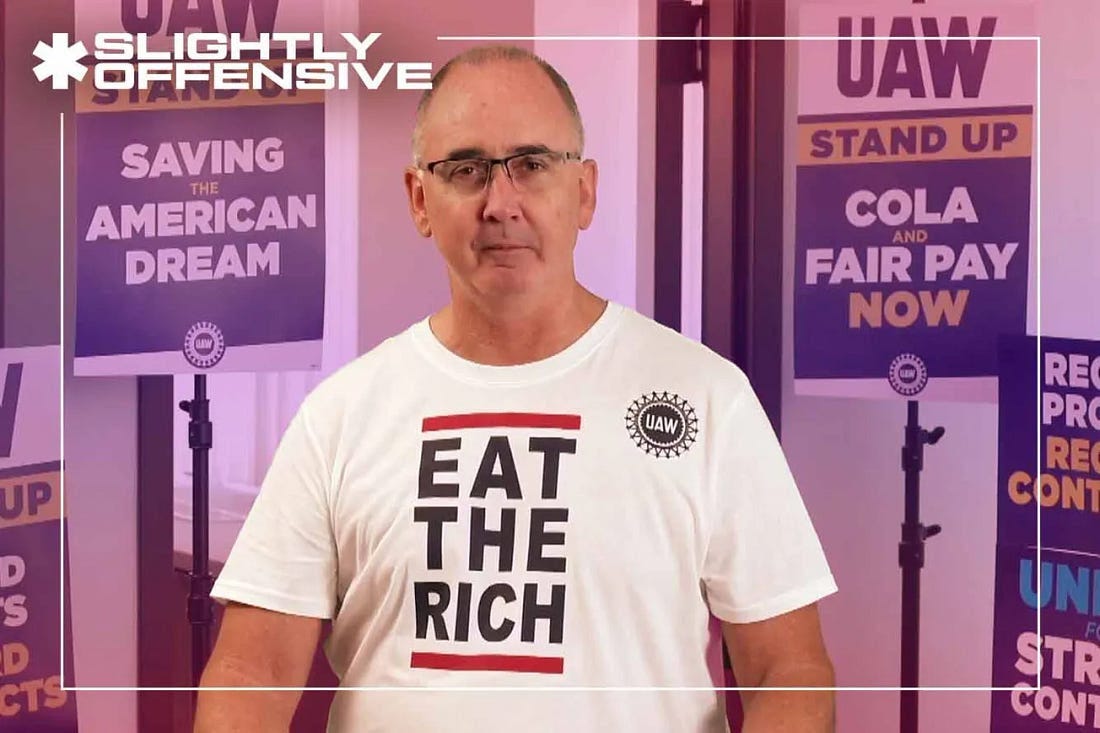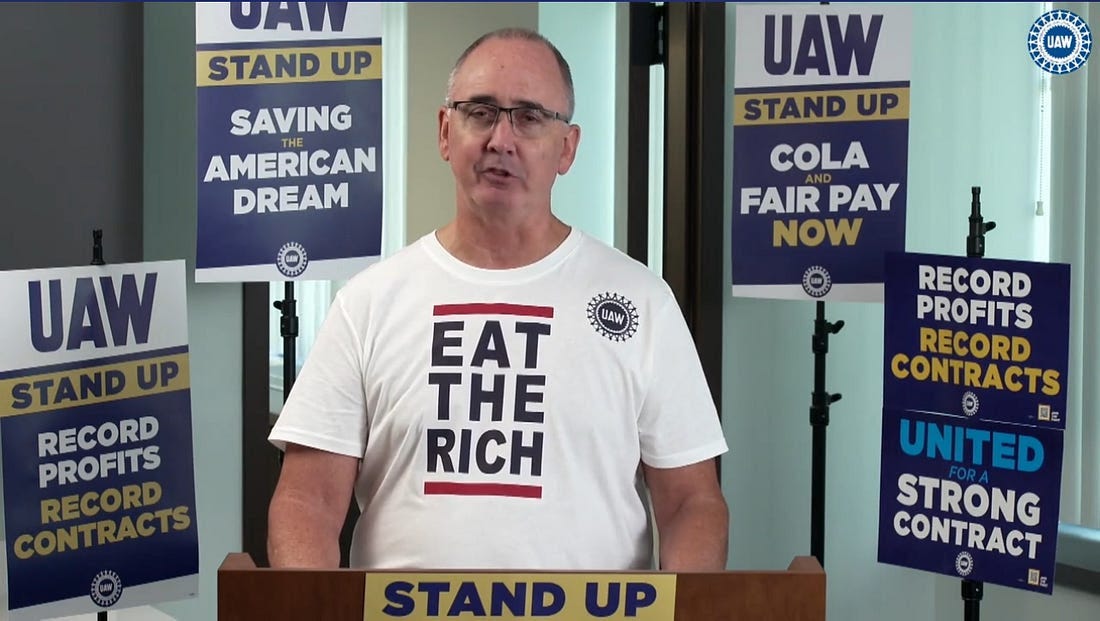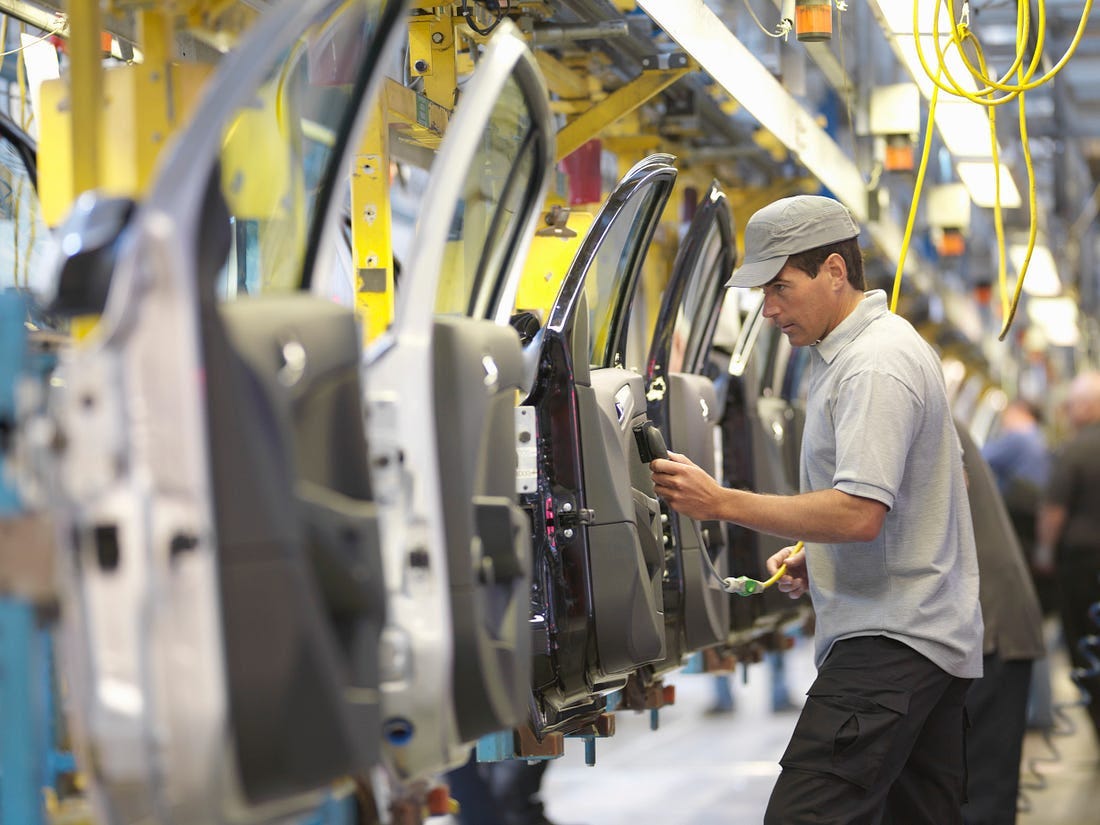Breaking eggs to make an omelette (an American one)
Yes, I did vote for this. The country's economy was teetering on the edge of a cliff. The past admins' trade policies had us over a barrel. (How many clichés can I put in here?!)
Trump’s Tariffs Just Won Over His Loudest Union Critic
Apr 2
WASHINGTON — President Donald Trump just pulled off a stunner. He won over United Auto Workers (UAW) President Shawn Fain with his new 25% tariffs on auto imports.
Fain spent 2024 trashing Trump and stumping for Kamala Harris. Now he says these tariffs, that kick in April 2nd, could force companies to bring jobs back to American soil.
For supporters, it’s proof Trump’s trade policies put workers first and stick it to decades of rotten deals like NAFTA. The left is scrambling, with some Democrats cheering and others crying foul, but the real story is Trump delivering where others just talk.
Fain’s flip is hard to ignore. Last year, he told the AP, “When Donald Trump was in office, he did nothing to help the American auto worker,” but on a recent episode of Face The Nation, he said, “I’ve had companies tell us point blank they’re going to have to bring product back here if those tariffs are implemented.”
The UAW’s official line backs him up and calls it a “major step” to fix the free trade mess that has bled auto jobs dry. Trump’s team is eating it up. Press Secretary Karoline Leavitt crowed on March 27 that even Fain, once a die-hard skeptic, sees this as a game-changer for the industry.
Trump is betting big on these tariffs, slapped on cars, light trucks, and parts from Canada, Mexico, and beyond. He is calling auto imports a national security risk, a move that lets him bypass Congress and hit back at countries flooding the U.S. market.
The White House says it’s about protecting the 1 million auto jobs that grew 13.8% under Biden, gains Fain credits to union grit, not handouts. Conservatives argue it’s Trump who will keep those jobs here, not some globalist fantasy, even if automakers like Toyota and Volkswagen grumble about supply chain headaches.
Some Democrats can’t help but nod along. Michigan Rep. Debbie Dingell released a statement saying it’s “a good first step” to shield workers.
She’s not alone. Auto-state lawmakers in places like Pennsylvania and Wisconsin, where Trump flipped union votes in 2024, see the appeal.
But Rep. Elissa Slotkin, D-Mich., warned on March 28 that “a trade war will jack up prices and hurt the very families we’re fighting for.” The split shows a party unsure how to counter Trump’s pull with blue collar workers tired of jobs going overseas.
Fain is not handing Trump a blank check, though. He blasted Democrats in that AP interview and said, “The reason Donald Trump’s president right now is we’ve got too many Democrats who can’t decide who they want to represent.”
He’s still pushing the PRO Act to boost unions, something Trump hasn’t touched, and points to the president’s bid to ax a Democratic NLRB appointee as proof he’s no labor saint. But for conservatives, the tariffs overshadow that noise. With UAW membership down to 400,000 from 1.5 million in the ‘70s, this is about survival, and Trump is the one swinging.
The blowback is already brewing. Reuters reported that U.S. stocks took a hit after the tariff news, with global carmakers like Toyota seeing shares dip.
Canada’s Prime Minister Mark Carney called it a “direct attack” on March 26. The EU’s Ursula von der Leyen promised retaliation by April 1.
Critics are warning that car prices could climb and squeeze buyers, maybe costing jobs later. But for now, Trump has Fain’s ear and a win conservatives say proves he’s the real deal for workers, not the elitists who’ve left them behind.
HERE’S JOHN CARNEY’S ANALYSIS. HE’S RARELY WRONG. BRILLIANT GUY...
Breitbart Business Digest: Expect a Trump Tariff Boom, Not a Recession
The Establishment’s Big Guns Come Out Blazing Against Tariffs
Olivier Blanchard is a renowned economist—former chief economist of the IMF, Robert M. Solow Professor Emeritus at MIT, and Senior Fellow at the Peterson Institute for International Economics. When he speaks, the establishment listens.
So, when Blanchard took to social media Wednesday morning—or “Liberation Day,” as President Trump is calling it—with a long post warning that Trump’s forthcoming tariffs could plunge the U.S. economy into recession, the commentariat responded with glee that their bias against Trump’s economic proposals was being confirmed from on high. His argument boils down to this: tariffs may initially reduce imports and boost domestic demand, but that effect will be offset by rising interest rates, a stronger dollar, falling exports, and ultimately a return to the same trade deficit—just with added costs and a misallocation of resources. In his view, the result is “a general mess”: a recession, no long-term gain, and higher prices paid by U.S. consumers.
Blanchard also says the worst part may not be the tariffs themselves, but the uncertainty they generate. If businesses don’t know whether Trump’s tariffs are transactional, temporary, or permanent, they’ll delay investment decisions. Everyone will “wait,” he says, and that pullback in investment will reduce aggregate demand and trigger a downturn.
It’s a familiar, polished take. But it doesn’t hold up.
(Read the full piece at the link embedded in the headline.)






